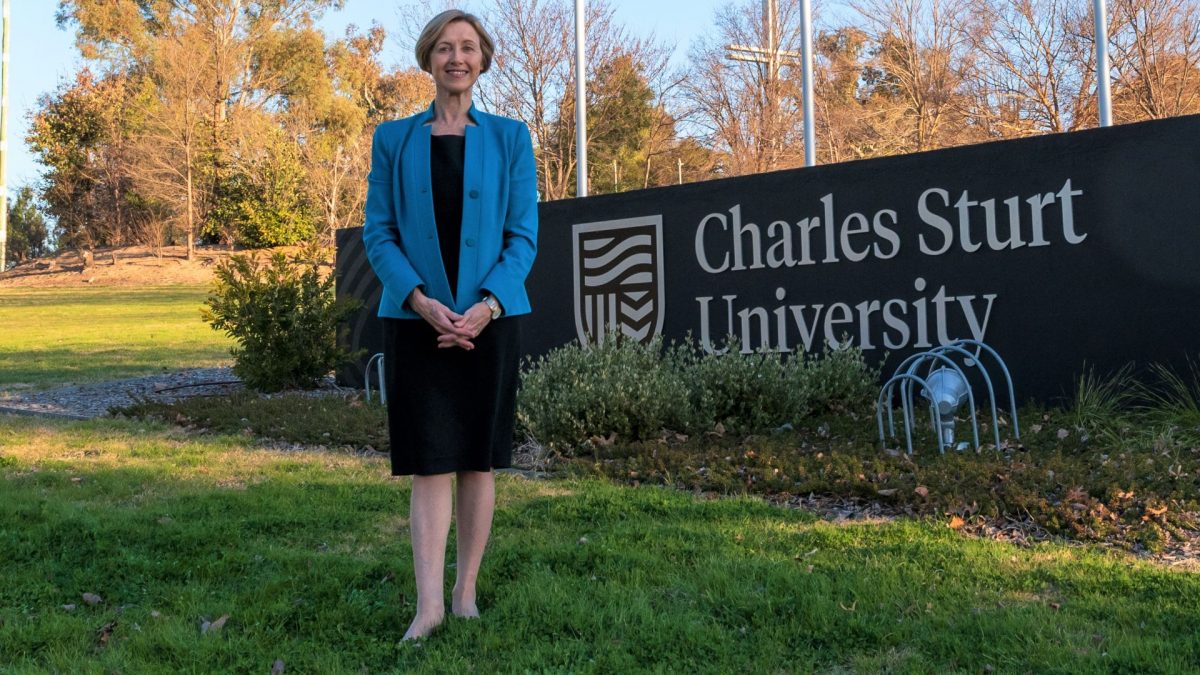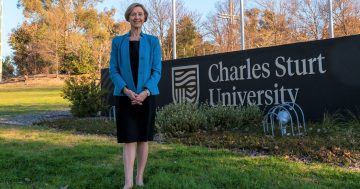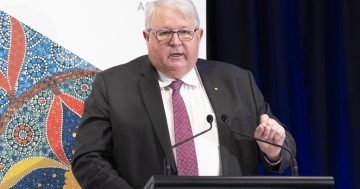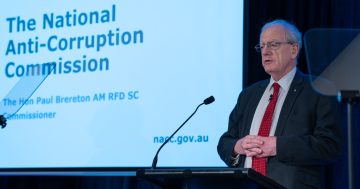
Renée Leon, former DHS secretary, and now Vice-Chancellor of Charles Sturt University, says risk is good. Photo: CSU.
It’s International Women’s Day (8 March), and to mark the occasion, one of the country’s most senior public servants has called for girls to be raised to be risk-takers.
Renée Leon, Vice Chancellor of Charles Sturt University, former secretary of the Department of Human Services, and the current national president of the Institute of Public Administration Australia, said the country needed more risk-takers, and asked, why shouldn’t they be girls?
“They will learn while they’re climbing trees and swinging on monkey bars that risks are OK and you actually learn from things that don’t go as planned,” she told the IPAA’s Future Women’s Leadership Summit.
“Then they will be the CEOs and will change the future.”
Professor Leon also suggested that, contrary to common opinion, the public service is a place where risks are taken regularly.
The reason for that, she said, is because industry often won’t take risks with their own money, so it’s left to the public sector to be innovative.
Big risks such as CSIRO developing wifi wouldn’t have happened in the private sector.
The NDIS was another example she used to show how much risk the public sector is actually prepared to take.
She said it’s when politics gets involved that public service risks run into trouble.
“The risks that the public service are often pinged for are actually risk averseness about political risk by their leaders,” Professor Leon said.
“You know, ‘we’re just worried that it won’t play well in marginal seats’.
“I hope that we will one day move beyond that, but we’re not there yet.”
Challenging the view that public servants are mere “cardigan-wearing paper pushers”, Professor Leon said the public service was full of innovation and inspiring leaders.
“I could just go for making money at the university, but that would mean abandoning a lot of less fiscally rewarding courses that regional communities need,” she said.
“I’ve got a responsibility as part of a regional community to make sure we’re still providing courses, even though they might be making the loss in a very difficult fiscal environment for universities because they’re important.”
The vice chancellor is no stranger to taking risks herself.
With an impressive career, having been the chief executive of the ACT Department of Justice and Community Safety, a deputy secretary in the Attorney-General’s Department and the Department of the Prime Minister and Cabinet, Professor Leon lost her job in DHS for giving frank and fearless advice over Robodebt and for moving to shut down the scheme once she received advice that it was illegal.
She recently gave evidence at the Royal Commission into the Robodebt Scheme, saying the minister responsible at the time, Stuart Robert, refused to back down after learning of the program’s legal status – instead telling her they would “double down” and not apologise.
“In 30 years as a public servant, I had never discovered that I had been administering a program of scale that was unlawful,” Professor Leon told the inquiry.
She said she “ended up having to stop the program in advance of a decision from the government to do so” and hoped the government hadn’t been previously ignoring legal advice about the scheme.
“The public service ought to have some red lines, and lawfulness is one of them,” she said.
In his subsequent evidence to the Royal Commission, Mr Robert denied ignoring legal advice.
At this week’s IPAA panel session under the heading Risky Business: How smart risks can build a great career, Professor Leon noted that assessing risk in the public sector is like “five-dimensional chess” with a “multiplicity” factor.



















